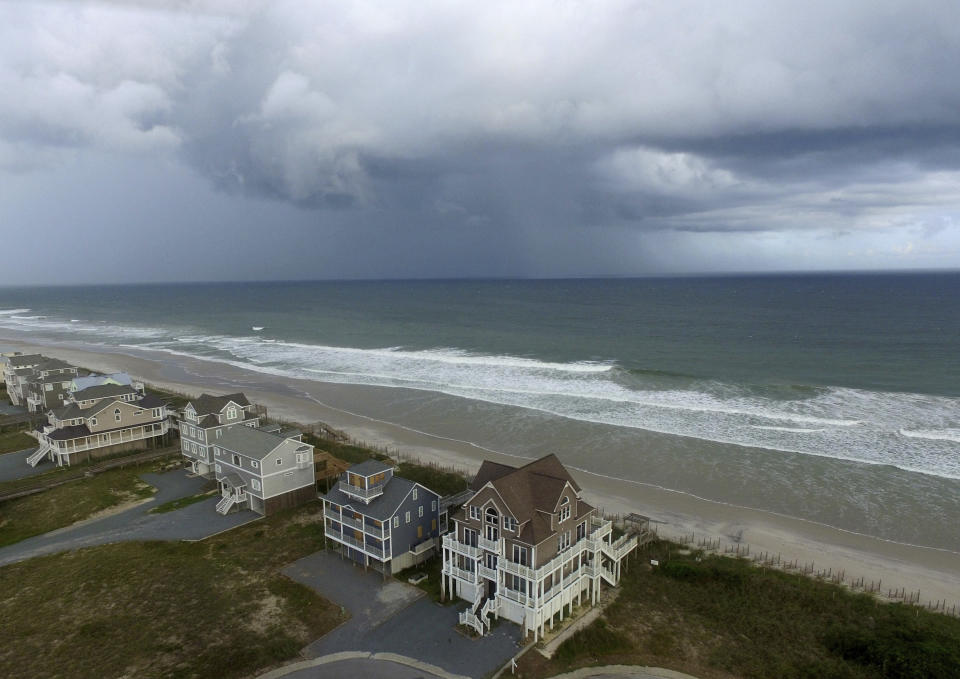The economic myth about hurricanes
Once Hurricane Florence has subsided, billions in recovery aid will flood into the impact zone, as construction crews work 24/7 to rebuild wrecked buildings. News reports will most likely claim the buzz of new activity will stimulate the local economy.
That’s nonsense. Hurricanes and other natural disasters destroy value, on the whole, and normally cause an economic setback—not a boom. “Whenever there’s a hurricane, there will be some media person saying the silver lining is, it will stimulate the economy,” economist Donald Boudreaux of George Mason University tells Yahoo Finance. “But these calamities destroy real resources—roads, inventories, factories, offices, homes, vehicles. When people have to rebuild a roof that was perfectly fine yesterday and is now destroyed, that’s money people don’t have to spend on other things.”
There are certainly some parts of the economy that benefit from the rebuilding that follows natural disasters. Construction crews, cleanup teams and utility workers will make bank working as much overtime as they can stand. Generator sales typically soar, great for companies such as Generac. Demand for construction materials spikes, a windfall for retailers like Lowe’s and Home Depot.

But natural disasters are massively disruptive, and they normally generate more loss than gain. Stores, restaurants and businesses close, sometimes for weeks. They recoup some sales once they reopen, but other sales are lost forever. People who evacuate or tend to damaged properties miss work, and sometimes don’t get paid. Insurance covers some losses, but individuals and businesses also get hit with out-of-pocket costs that can wreck their finances. In worst-case outcomes, businesses go bust and families lose their homes.
There may be one mitigating factor: upgrades to damaged property. “If done properly, rebuilding can improve the capital stock,” economist Ryan Sweet of Moody’s Analytics tells Yahoo Finance. “New infrastructure will replace old and outdated infrastructure.” Of course, hurricanes also wreck roads, bridges and facilities that don’t need upgraded.
Florence will damage a part of the country that includes several key ports and accounts for about 6.7% of national GDP, according to Moody’s Analytics. Disruption at ports such as Charleston could hurt supply chains throughout the south, and beyond, in industries including autos, lumber and paper. Exports to Europe will slow down. Fuel pipelines and refineries may have to be shut temporarily.
The government measures GDP in a way that does not subtract property damage from economic growth. So that type of economic loss does not show up in the numbers. But rebuilding and replacement purchases do show up in GDP. Even so, the U.S. economy is so large and diverse that even giant storms—such as Hurricanes Harvey, Irma and Maria last year—barely alter national economic growth numbers. But in the impact zone, the economic pain can endure, and be intense.
Confidential tip line: rickjnewman@yahoo.com. Click here to get Rick’s stories by email.
Read more:
Rick Newman is the author of four books, including “Rebounders: How Winners Pivot from Setback to Success.” Follow him on Twitter: @rickjnewman

